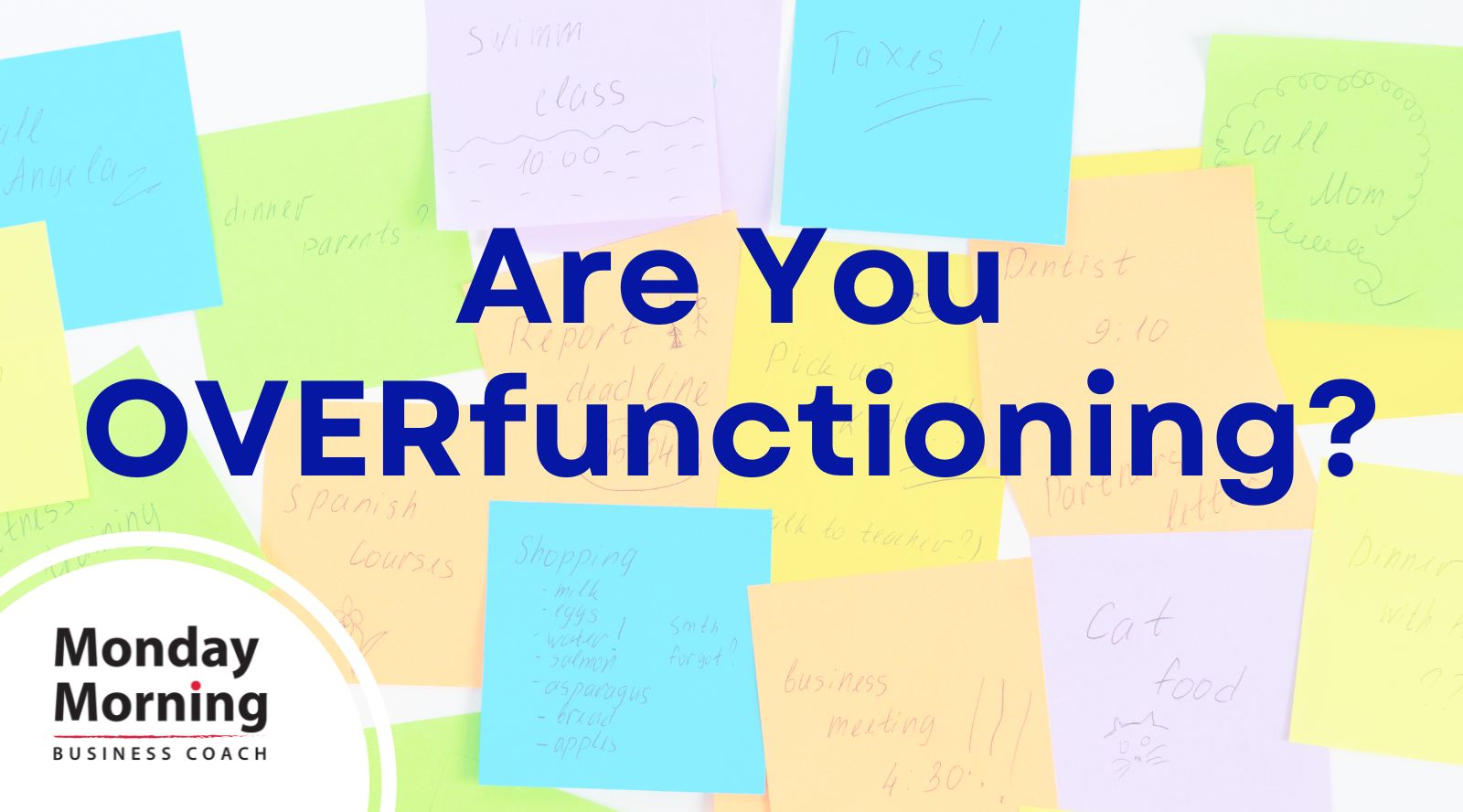As a continuation to our recent self-care, gratitude, and rest posts, we thought we’d check in with you and offer you some additional suggestions for your health and wellness.
Many of us tend to wear “busy” as a badge (especially around the holidays!), and all too often, we push numbly through the anxiety, pain, and stressors of life.
It’s important to remember that you matter. When you forget to matter to yourself, you can often discount your own needs, take on more than you need to, and then find yourself overfunctioning.
We want to remind you
that you don’t have to take on all the things
for all of the people.
We found this recent article on Psychology Today by Susan Biali Haas M.D., that discusses the signs of overfunctioning as well as some suggestions to change your behavior.
In the article, Biali says this about people who overfunction,
“Overfunctioners have very high capacities, are responsible and reliable, and frequently perform at a high level. High performers have received lifelong applause and affirmation for their impressive performance. They get promoted into leadership because of their ability to multitask, meet high expectations, do the hard things, and get things done.”
High performing is great until it becomes a cycle of overfunctioning and burnout. Your health and wellness are important and burnout is serious.
Burnout is, in many ways, a response to depletion and has very real physical, emotional, and spiritual consequences. Learning how to take care of yourself is critical so you can live with energy, success, and satisfaction.
If you find yourself doing all of the things for all of the people all of the time, we encourage you to read our suggestions below, to work toward finding more balance and satisfaction in your life.
PAUSE
In order to change your existing reactive behaviors, it’s important to PAUSE to interrupt them.
- Before you take on another task, responsibility, or workload, PAUSE.
- When you pause, ask yourself something like, “Is what I’m about to do or say in alignment with my goal of NOT overfunctioning?”
REFLECT
If you find that you’re not in alignment with your goal, consider reflecting on what’s going on inside of you.
- “What’s driving me to overfunction? What am I afraid of?” Maybe it’s something like fear of failure, letting others down, or being seen as unsupportive.
- “What do I do when I feel safe?” Maybe you’d be more apt to delegate, bring others in to lighten some of the load, or let the other person know that you aren’t able to take on more.
TRY “Yes, and…”
If you’re an overfunctioner, it’s likely that you have trouble saying “no” to people. In our work, we’ve found that there is a space between a simple “yes” or “no”. A space that demonstrates that you matter and they matter.
- Instead of saying “yes” to a request and then figuring out later how to cram it into your packed schedule, consider saying something like, “Yes, I’d be happy to work on X, AND, I can’t get it to right now. If you could come back to me in Y amount of time, we can discuss it then, to see if I have the bandwidth.”
- Instead of saying “no” to a request and feeling unsupportive or that you’ve shut the other person down, consider saying something like, “No, I’m not able to work on X because I’ve got too much on my plate and don’t see an end in sight, AND I’d be happy to spend 10-15 minutes with you to either show you how to do it or to brainstorm who else might be able to help.”
- In both of these examples, you’re demonstrating that you matter (my time has value) and they matter (their request has value).
As we’ve mentioned in previous posts, PAUSE often, as you learn this new behavior. Consider adding one or more of these into your schedule:
- PAUSE each morning to set intentions.
- PAUSE mid-day to check in and see how you’re doing and feeling.
- PAUSE at the end of the day to reflect on your day and to think about any shifts you might make for tomorrow.
- Set reminders on your computer or phone to remind you to PAUSE and check in with yourself.
- Leave notes (in your own words) around the office, car, or house that will aid you in PAUSING and letting yourself know that you matter.
- Find an accountability partner, friend, colleague, coach, or therapist to support you in PAUSING and finding balance.
Remember that YOU matter and THEY matter. Nurturing yourself and your relationships are key to living a life of satisfaction and purpose.
Stay well.
If you’d like support in
setting healthy boundaries,
contact us today.


